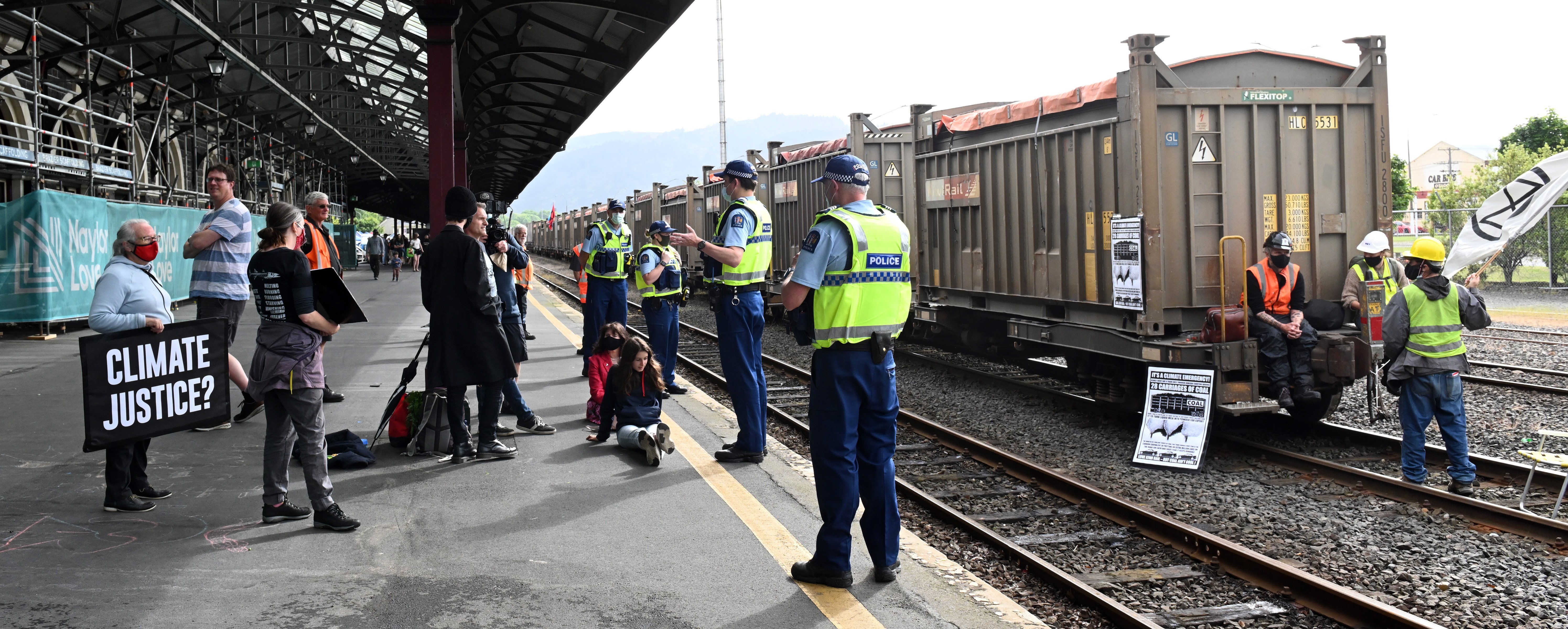Abigail Katrina Libby, 45, Bruce Bertram Mahalski, 61, Fay Margaret Brorens, 66, Timothy Richard Musson, 54, Anne Margueretta Smith, 76, and Joanne Kathleen Sutherland, 56, appeared in the Dunedin District Court yesterday, where they were found guilty of trespass.
The court heard the members of Extinction Rebellion may now be liable for a $60,000 reparation bill but a report was ordered to clarify that.
Judge David Robinson amended the charges of interference (laid under the Railways Act) to trespass in yesterday’s ruling and found all six guilty.
He made the amendment because police overlooked essential elements of the original charge.
The police failures were “reflective of poor practice”, Judge Robinson said.
Musson, Smith, Mahalski and Libby were acquitted of obstructing a railways employee, while Brorens pleaded guilty to the charge during the trial.

Judge Robinson did not enter convictions against the defendants, inviting counsel to file submissions on a potential discharge without conviction at sentencing.
The six were arrested on December 4, 2021, after blocking a coal train and inadvertently causing the cancellation of the Victorian excursion to Oamaru.
The target of the protest was carrying 500 tonnes of coal to Fonterra’s Clandeboye factory near Temuka, to turn milk into powder for export.
There were several people on the tracks outside the railway station and north of the St Andrew St level crossing, both in front and behind the train.
Other protesters climbed on top of carriages, the court heard.
The area’s KiwiRail operations manager at the time, Jamie McFarland, told the court that the train was unable to move forwards or backwards and, because protesters were lying on the tracks, no other locomotive could get around them because they might have been "crushed".
He said it was the 15th or 16th time he had responded to the group’s protest actions within a year.
Senior Sergeant Anthony Bond attended the scene and described issuing warnings to protesters both on the train and the tracks, some of whom were connected by metal devices.
Those who did not leave voluntarily were arrested.
Delays lasted more than three hours and three services were cancelled.
The coal train continued to its destination within the next two days.
Much of the incident was captured on CCTV, the court heard, and the defence at trial was based on necessity; essentially that the accused could not be guilty of the crime because they were acting to protect human life.
While the courts were becoming more tolerant of climate-change litigation, Judge Robinson stressed the lawful resources available to the defendants, which included petitioning Parliament, lobbying ministers or citizens-initiated referendums.
Sentencing will take place in December.











